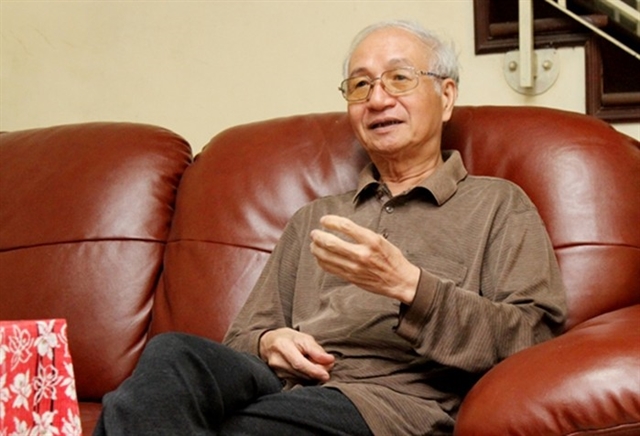.jfif) Opinion
Opinion


|
| Đào Ngọc Nghiêm. — Photo moitruongvadothi.vn |
Đào Ngọc Nghiêm, vice president of the Việt Nam Urban Development and Planning Association, talks to Kinh tế & Đô Thị (Economy and Urban Affairs) newspaper about what Hà Nội should do to develop a master plan for the city for 2021-2030 with a vision to 2045.
What do you think about Hà Nội’s first draft of the municipal development plan?
Hà Nội is one of the first localities in Việt Nam to have completed its master plan for the next 10 years with a vision to 2045. I highly appreciate Hà Nội's Party Committee, People’s Council and People’s Committee for their efforts to develop this plan in such a short period of time. This master plan will serve as a management tool for the city in its course of socio-economic and cultural development to improve the quality of life while raising the capital to a higher level in Việt Nam and internationally.
However, in the context of innovation and integration leading to an economy of a much larger scale, general planning of the whole country, including Hà Nội, has also revealed its shortcomings, namely too many overlapping plans and no feasible use of resources. For example, from 2000 to 2010, the country had more than 3,100 planning projects, and from 2010 to 2020, the number increased six times.
The planning lacks cohesion and it overlaps. The method has not been updated to suit the market economy and international integration. The Law on Planning was launched in 2017 but the implementation still has problems that need resolving. When puts planning under the law, it will be necessary to identify the challenges and find solutions for these problems.
What differences are there for new planning activities?
There have been many plans made for different sectors that have taken effect at city and provincial levels in Việt Nam, such as socio-economic planning, construction planning, transport planning and land use planning. In the near future, planning will integrate different sectors, and provincial planning must deal with socio-economic, cultural, land, urban and rural orientations, the environment, infrastructure and architecture.
However, what I want to say is that under the current system, not many projects consult each other during their implementation.
What should project owners focus on during the implementation of a major project?
The first thing that project owners should do is develop a detailed plan on who they should consult during project implementation and who should be included on the project appraisal committee. Of course, these people should come from the relevant ministerial levels, localities and social organisations. Adding to that we also need to have a database for planning work.
In the course of developing Hà Nội's development plan, it is very important for the management board to conduct comprehensive impact assessments on the ongoing projects in the city as well as future projects that will be carried out in the near future. — VNS